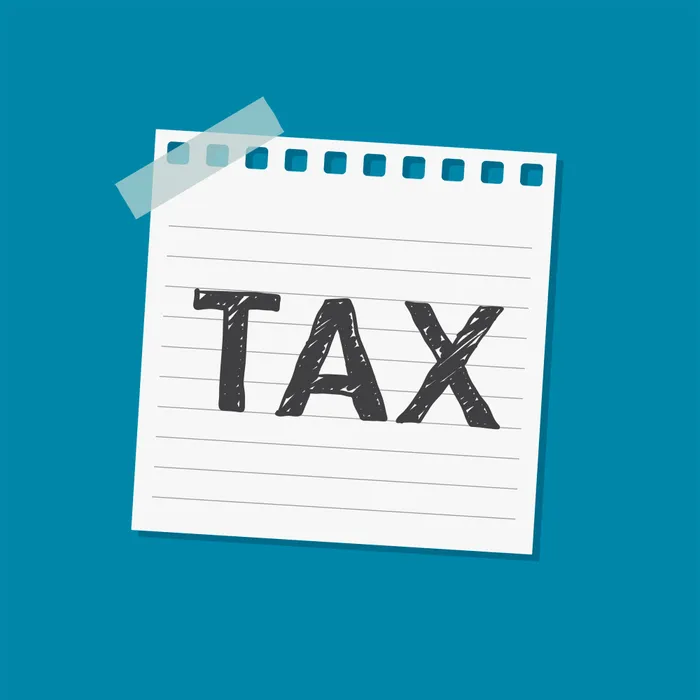How to protect yourself from tax season scams and eFiling fraud

Tax With the 2025 tax filing season underway, learn how to protect yourself from rising scams and fraudulent schemes targeting taxpayers.
Image: Freepik
With the 2025 tax filing season underway, taxpayers and registered tax practitioners are urged to exercise heightened vigilance amid a rise in scams and fraudulent schemes targeting the process, according to the South African Institute of Chartered Accountants (Saica).
Saica says criminal networks are actively exploiting the season by impersonating officials and mimicking official correspondence to exploit unsuspecting individuals.
The scams broadly fall into two categories: those designed to trick taxpayers into making payments or disclosing sensitive banking information, and those intended to manipulate eFiling profiles or submit false data in order to extract refunds, it says.
According to the group, these schemes range from rudimentary phishing attempts to sophisticated fraud using remote access tools to gain control of devices or even biometric data through video calls.
“Fraudsters gain access to profiles and redirect refunds to their own bank account by changing bank and other details on the profile," says Somaya Khaki, Saica lead for tax advocacy (administrative law)
Common scam tactics
Khaki outlines key methods used by criminals:
- eFiling profile hijacking – Fraudsters access taxpayer profiles and alter banking details to intercept refunds.
- Phishing via email or SMS – Fake messages impersonating Sars request personal or banking details, or contain malicious links that harvest user information.
- Impersonation calls – Scammers pose as Sars officials to extract login details or One-Time PINs, often offering to ‘assist’ with refunds.
- Fake letters of demand – Taxpayers may receive emails bearing forged Sars letterheads, demanding payment into fraudulent accounts allegedly held by ‘Sars’.
- Bogus tax advisors – Criminals claim to be registered practitioners, promising higher refunds, charging for assistance, submitting false returns, and disappearing once audits are triggered, leaving taxpayers exposed to penalties and investigations.
- Audit scams – SMS messages claim Sars is auditing your refund and redirect you to fake websites designed to collect personal information.
- Targeting vulnerable individuals – The elderly and tech-inexperienced are often targeted via calls or messages seeking sensitive data for identity theft or profile hijacking.
Tips to protect yourself
Saica says being informed is your strongest line of defence. Here’s how to stay ahead of fraudsters:
- Access official platforms directly – Never click on embedded links in messages. Visit www.sars.gov.za or use the MobiApp for secure access.
- Review your tax data – Check your return and profile thoroughly, especially banking and contact details submitted by third parties.
- Keep your info private – Sars will never ask for OTPs, passwords, or banking details over calls, emails, or texts.
- Reject unsolicited remote access – Never allow desktop or phone access unless you're absolutely sure of the requester's identity.
- Only pay through official channels – Confirm account details through your eFiling profile or the Sars website, never via email instructions.
- Verify your tax advisor – Confirm the person is registered with Sars and affiliated with a recognised controlling body. Ask for a letter of good standing.
- Strengthen cybersecurity
- Use unique, complex passwords
- Enable multi-factor authentication
- Avoid using public Wi-Fi for sensitive activity
- Don’t save login credentials on devices
- Support others in your circle – Assist elderly or less tech-savvy family members by helping them check Sars correspondence and manage their profiles.
Even with strong safeguards, fraudsters remain persistent and innovative. For the latest alerts, consult the Sars Scams & Phishing webpage and engage trusted tax professionals regularly, the group says.
What to do if you're compromised
If you suspect your device, bank details, or eFiling profile—yours or a client’s—has been accessed without your permission:
- Report the incident to SAPS as an identity theft case.
- Immediately report the digital fraud via Sars' Online Query System (SOQS). Use the "Report Digital Fraud" option to flag the issue. This stops any pending refunds while Sars investigates.
- Inform your registered tax practitioner so they can act accordingly and monitor for further activity. This helps explain potential delays, refund suspensions, or additional verification steps by Sars.
- Change all passwords on suspected accounts using a different, uncompromised device. If you believe the device itself was compromised, disconnect it from Wi-Fi or mobile data before changing your credentials.
PERSONAL FINANCE